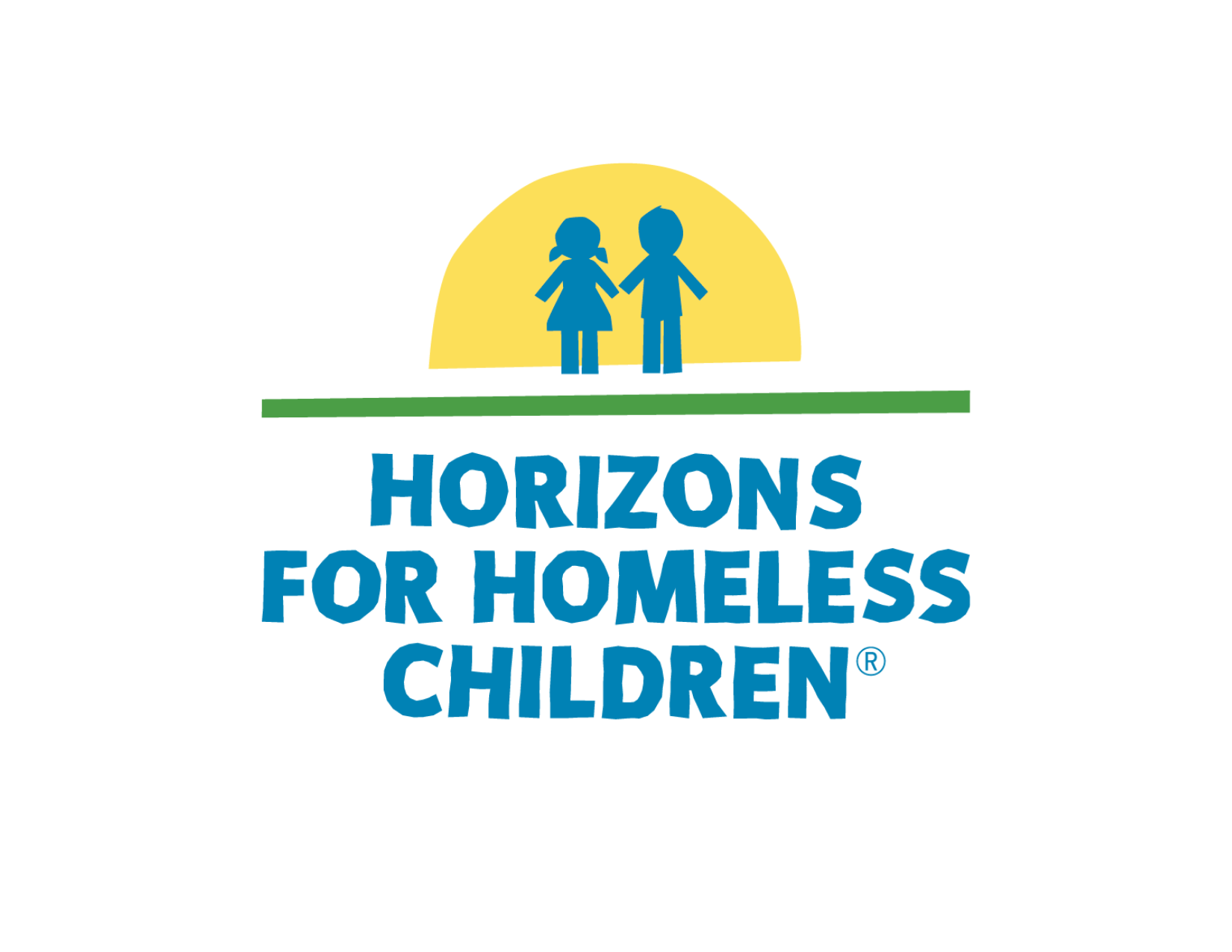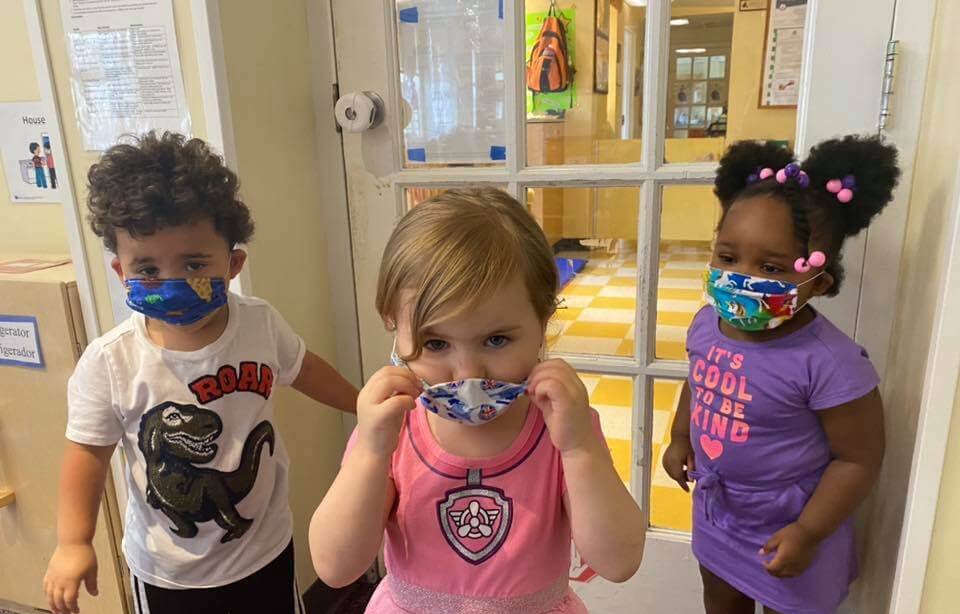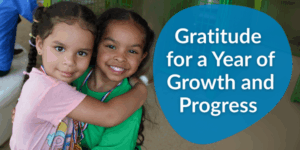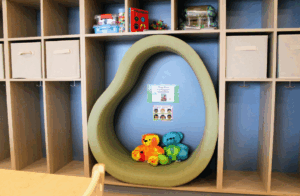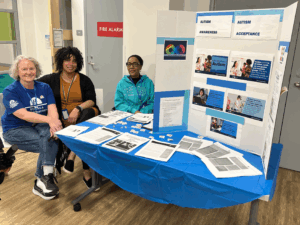Ensuring an Open Door for Those Who Need It Most
- by hhc_admin_1
Systemic racism continues to be a national discussion and amongst the Horizons community, the dialogue has brought a heightened awareness to our work, particularly where racial inequity intersects with our mission.
The discussion has inspired a three-part series that shares insights that we’ve found valuable working directly with children, how Horizons addresses equity as an educational institution and how we’re taking steps to operate in a landscape where diverse perspectives are key to ensuring the ability of the organization to fulfill its mission.
In this article, we’re looking into our classrooms and Playspaces to identify the practices that are core to our work serving children. We are regularly evaluating our classrooms and practices to ensure that our vision is reflected in how we deliver services.
In Horizons’ latest demographic report, 77% of the children we serve in our Early Education programs are Black, Hispanic or Multiracial. Understanding the realities families face due to systemic racism that impacts the trajectory of their lives is critical. It informs how Horizons provides services caring for and nurturing children on a path for long-term success.
A recent report from The Children’s Equity Project and The BiPartisan Policy Center identifies policy areas that strongly influence children’s experiences in the classroom and disproportionately disadvantage children of color. They include harsh discipline and its disproportionate application and the inequitable access to bilingual learning opportunities for dual language and English learners. Both of these are well understood and considered an integral part of Horizons’ Early Education setting.
Positive, not punitive discipline
The U.S. Department of Education Office for Civil Rights discovered in a 15-year study a disproportionately high rate of suspension and expulsion for students of color, outlining that “Black students are suspended and expelled at a rate three times greater than white students. On average, 5% of white students are suspended, compared to 16% of black students.” The report noted that students of color were consistently punished more severely than white students for the same infractions. These findings were further supported by the Children’s Equity Project report which stated, “Well-established research suggests Black children are often the subjects of implicit bias, with adults perceiving Black children as being older than they are, less innocent than their peers, more culpable and aggressive, and more deserving of harsher punishment than White children.”
The direct impact on a child’s learning and growth from being taken out of school is tangible– they are more likely to get behind on schoolwork, be required to repeat a grade, be suspended again or, as recent statistics detailed, drop out altogether. This is detrimental, especially in their early years of education. According to Sent Home and Put Off Track, a recent report by Johns Hopkins University, it was noted that 49% of students who entered high school with three suspensions on their record eventually dropped out of school, demonstrating that their formative years in preschool, elementary and middle school have a high impact on their futures.
These racial disparities were reported to start with children as young as preschool. Nationally, the U.S. Department of Education Office for Civil Rights noted that Black children represent approximately one fifth of preschool students yet comprise 48% of the out-of- school suspensions.
At Horizons, our education centers have a no-expulsion policy to support young children in their educational growth and bolster their opportunities for long-term success. “What we try to do instead of a suspension or expulsion is to come up with a plan with the parent and child to set goals and work on behavioral issues in an encouraging way,” explained Natisha French, Lead Pre-K teacher at Horizons’ Dorchester Education Center.
“It always starts with a discussion, which makes us different from schools that have a no tolerance policy and are quick to eject students from the classroom. We also strive to give children the voice to tell their side of a situation as we work with them. We take time to hear all sides of a story as we come up with a solution together with their parents,” Natisha confirmed.
A criticism of zero-tolerance policies in schools is that they don’t teach children important self-regulation skills – students are simply punished swiftly and sent off school grounds to fend for themselves. “The majority of a child’s time is spent at school, not only learning key educational skills like reading and writing but also social-emotional skills like sharing and communicating emotions in a healthy way,” Natisha continued. “With a long suspension, there’s a strong possibility of regression if parents are not able to work with them one-on-one outside of the classroom due to work or other barriers.” When a child is left out of class, their resources are limited and they can get behind on educational milestones as well as regress in their behavior.
Natisha shared an anecdote from her classroom that illustrated Horizons’ approach of promoting positive discipline. “We recently had a child who relied on hitting and yelling to express their feelings and was having a hard time following direction.” Children who have experienced the trauma of homelessness may exhibit such behaviors due to the unsettling nature of their home life. It’s important for these children to develop trusting relationships with caring adults, and in these instances, Horizons will ensure a main teacher works one-on-one with the child so they can build a relationship and take comfort in consistency and routines.
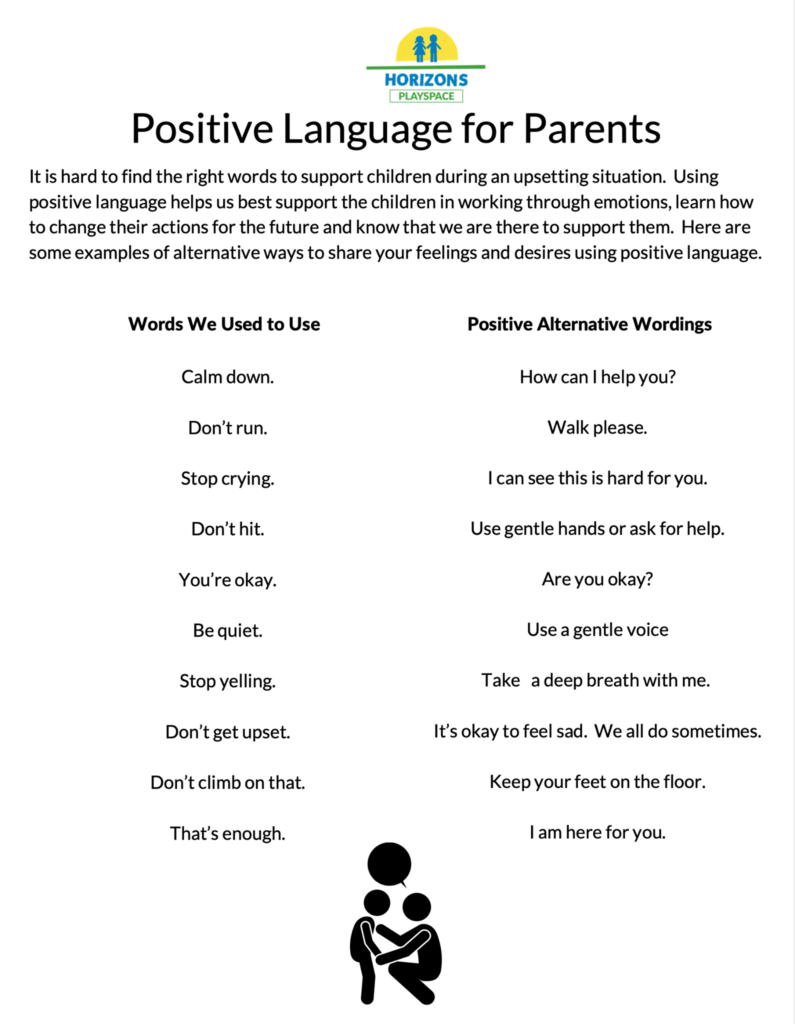
“Through visuals and repetition, we work with the child on any behavior issues they are exhibiting and invite the parent into the classroom to work together with the child. This way, the tools and language used at home and in the classroom are consistent to keep the child on track in their development and progress,” added Natisha.
As part of the Family Partnership program, our team also helps to facilitate these goals with parents to help them work with the child outside of school on any behavioral-based objectives. So long as behavioral issues are being actively worked on and the safety of the child and teachers are protected and maintained, Horizons recognizes the best place for students to learn and develop is in the classroom. Doing so with access to mental health services for children and parents is invaluable when it comes to building healthy relationships, thought patterns and practices that facilitate learning.
“It’s important for our families to know they are always welcome at school – even if it’s just to come in and read a book for twenty minutes; we don’t turn them away,” Natisha affirmed. Understanding that many of the children we serve are in demographics most affected by deep-set systemic inequities further drives our commitment to our students and families. Horizons works to provide the tools and support these children need to thrive during the most formative years of their life as they build the foundations for their futures.
Language is key to addressing gaps in access
Inequitable access to bilingual learning limits opportunities for dual language and English learners. About one-third of children in the United States are dual language learners. In Horizons’ latest demographic report, 48% of the children we serve and 48% of parents speak a language other than English as their first language. High-quality dual language immersion instruction is associated with improved outcomes for all students.
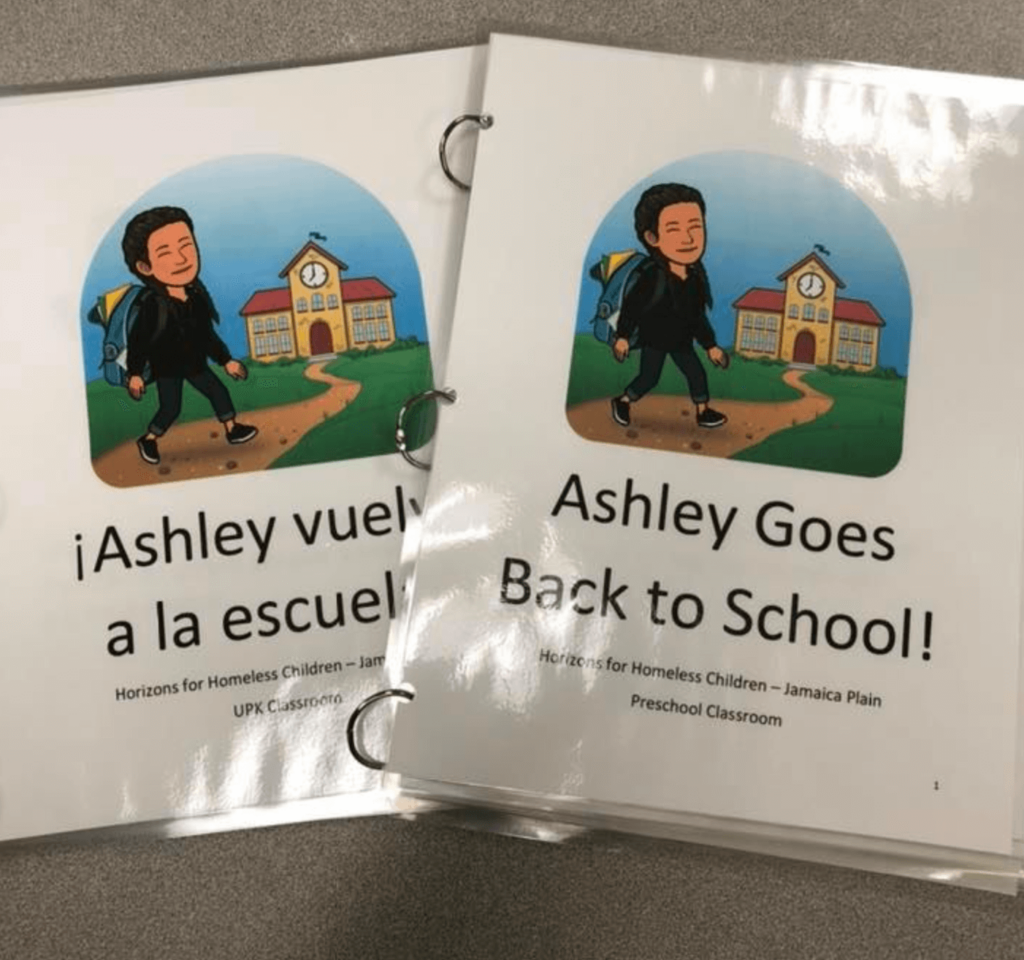
Horizons takes this to heart and builds classrooms where toys, books and signage are in multiple languages. Every classroom has at least one multi-lingual teacher, and classroom discussion happens incorporating both English and Spanish. The Family Partnerships program acknowledges parental needs when it comes to language and goes beyond just offering translated paperwork, but works to be linguistically and culturally inclusive. Parent groups can be conducted in Spanish and families who need English language support may be placed with Family Advocates who speak their native language. This is particularly beneficial since parental comprehension is critical to the child’s success in school.
Like in the classroom, shelter Playspaces have shelves and bins holding toys and materials with labels in English, Spanish and pictures so no matter a child’s language skill they can learn what items are available to them for play. Books are available in multiple languages and are representative of different cultures and backgrounds to further celebrate diversity, and toys such as puppets and dolls represent different ethnicities while food in play kitchens include different cultural dishes and produce. The Playspace team also takes family needs into consideration when creating Playspace Activity Leader (PAL) schedules and placement.
“When recruiting PALs, we ask what languages they speak and cross reference this information with an internal database we have of shelters hosting bilingual or English as a second language families,” explained Meghan Schafer, Horizons’ Playspace Program Director of the Southeast Region. “We then work to place these PALs at shelters where their language skills would help children and parents communicate more easily and comfortably.”
“When sharing resources with parents,” Meghan continued, “we also work to have them translated based on what languages are spoken at shelters such as Spanish, French, or Haitian Creole.”
Horizons’ programming is constantly evolving to make our work more inclusive, equitable and meaningful to the children and parents it benefits. Whether a family is working with a Teacher, Family Advocate or Playspace Activity Leader, Horizons is dedicated to supporting their needs and helping them face challenges from a place of strength and resilience.
This piece was written by Andrea Drag, a regular contributor to Horizons’ Blog.
